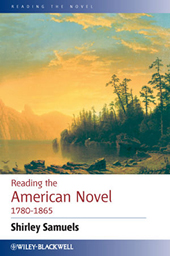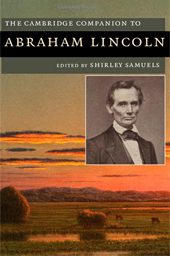Samuels publishes books on 19th-century literature and Lincoln's prose
By Linda B. Glaser

Although such great 19th century novels as "The Last of the Mohicans" and "The Scarlet Letter" continue to be read, it is often difficult for contemporary readers to understand them in context. The new book "Reading the American Novel 1780-1865" (Wiley-Blackwell) makes a strong case for reading historically and offers readers a guide to understanding 19th-century literature.
"Of course I'm influenced by different theoretical models of what one does when one reads literature," said author Shirley Samuels, professor of English, "but I'm also pretty invested in the idea of contextual reading that establishes the power of historical and political forces in influencing what matters."


As a feminist historian, Samuels addresses issues of masculine and feminine identities, as well as women writers and ideas about women's work in her book. "Gender, class and sexuality are often terms that tend to be in competition," said Samuels, who in contrast prefers to focus on the relationships among them.
The book expands on some of the themes addressed in Samuels' earlier works, including her "Romances of the Republic: Women, the Family, and Violence in the Literature of the Early American Nation" (1996) and "Facing America: Iconography and the Civil War" (2004). These include themes of violence and class, the relationship between domestic spaces and landscapes, and the ways in which concepts of the nation and the novel shifted during the 19th century.
Samuels puts the classics of the 19th century such as "Moby Dick" in the context of highly popular novels of the time that are not as well known today, such as Elizabeth Stewart Phelps' "The Gates Ajar." "It's a really good Civil War novel but it's also read appropriately as a Christian novel," said Samuels, "and it's very difficult for a reader in the 21st century to think critically about how to read Christian fiction. I'm fascinated about that in part because such fiction is often very political."
Her chapter on historical codes in literary analysis was included in the just-released "The Oxford Handbook of 19th-Century American Literature." The book examines cutting-edge approaches to the field of 19th-century literary studies; the Times Literary Supplement described the collection as shifting attention from the "what" to the "how" and "why" such texts are read, adding that its contributors -- including Samuels -- include eminent names and rising stars of the field.
Despite having served as chair of the history of art department for the last six years as well as house professor and dean of Flora Rose House, Samuels said she has had perhaps her most productive period of scholarship, as evidenced by the release this month of another book, "The Cambridge Companion to Abraham Lincoln" (part of the Cambridge Companions to American Studies series). Samuels recently sent a copy to Lincoln's 28th successor, President Barack Obama.
Samuels said she first "imagined" the entire collection, then specifically commissioned the essays on the topics she'd chosen. "The whole point of the collection, at least in the beginning, was to solicit original essays from scholars and literary critics who had never written on Lincoln before," she explained. The essays examine the rhetorical power of Lincoln's prose, from his earliest legal decision to his second inaugural address and everything in between. The essays also place Lincoln's language in a global context, offering a new way to assess Lincoln's impact on the world stage.
Linda B. Glaser is staff writer for the College of Arts and Sciences.
Media Contact
Get Cornell news delivered right to your inbox.
Subscribe